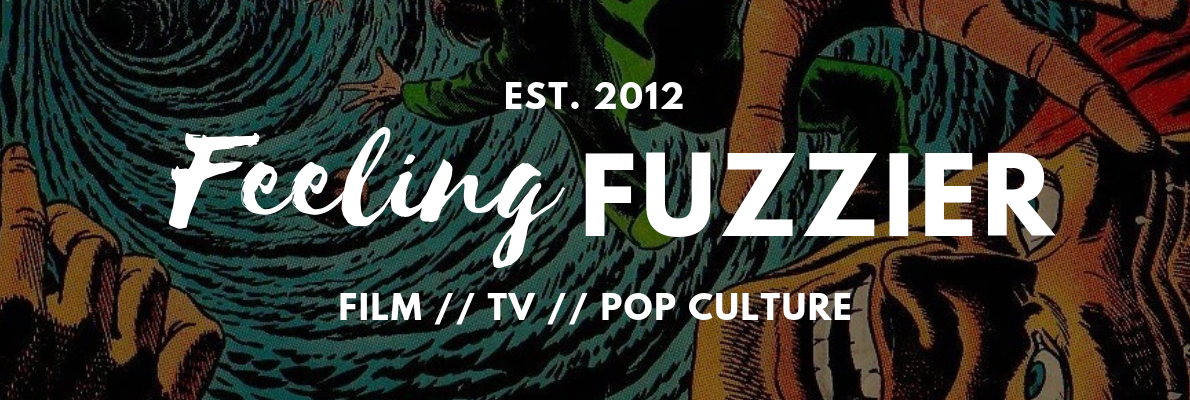British filmmaker Sam Mendes serves as both writer and director on 1917, an audacious war film that is a technical marvel with a hefty emotional wallop for good measure.
Set on the frontline of the Great War, 1917 follows two soldiers – Blake (Dean-Charles Chapman) and Schofield (George Mackay) – who are tasked with delivering an urgent message of withdrawal to an isolated British battalion about to charge headlong into a German trap.
If the two infantrymen fail to reach the commanding officer (Benedict Cumberbatch) in time, the battalion of 1600 men – with Blake's brother among them – with almost certainly face annihilation, and so begins a race against time as Blake and Schofield head out into no man's land and across unfriendly terrain against all odds.
Based on stories told to Mendes by his grandfather, who served in the Great War, the 'gimmick' (for want of a better word) is that 1917 is made to look like all one take (well, it's technically two), with the camera panning and dollying through each scene like a floaty ghost behind the two main characters. Sometimes it will swivel and dolly backwards, but often it's following Blake and Schofield as if we, the audience, are a third silent protagonist who is literally following in their footsteps.
In many ways, 1917 unfolds like a videogame, from the camera is positioned to the way each new area the characters visit – from muddy no man's land to a dusty mineshaft, a blossoming orchard, flowing fields, dilapidated farmhouse and winding trenches – arrives like the next 'level' in a game, with new terrain to traverse, new enemies to outfox and new 'cutscenes' – or periods of extended dialogue – where we learn something personal about the characters.
That might seem like a slight, but it's genuinely not – merely an observation about structure and staging. The ethereal nature of the camera, which slowly winds its way through each section, takes a bit of getting used to. The pan especially will take some time for your eyes to adjust to, as the focal point of a static shot simply isn't there – I found the opening ten minutes of the film, where Blake and Schofield are jolted awake and told to report to command, a little disorienting as my brain rewired itself to the movement of the camera.
That said, the technique is objectively seamlessly executed throughout. The seams are very tidy and hard to spot, and the sheer amount of attention to detail that has gone into the set design, staging and framing is impeccable. I don't even want to think about how long it took to map it all out and then shoot – it's so well done that I'm pretty sure magic was involved. A wizard must have helped. Plus, the visual effects are either very minimal or equally as hard to spot – the whole thing, aside from a couple of moments, feels like it could have genuinely been done in camera.
The way Mendes and cinematographer Roger Deakins play around with lighting and shadows, particularly during the sequence set in the thick of night, really puts the audience with their boots of the ground. There are moments of genuine terror and fright, as bullets crack through the air and jolt you like a cattle prod to the spine. There are moments of quiet contemplation and sadness, as well as moments of heart-pounding adrenaline and action.
 Unlike the perfunctory solider characters in Christopher Nolan's Dunkirk, I feel like you really get to know Blake and Schofield during 1917. In terms of characterisation they're nothing outrageous – Schofield is quiet, terse and pragmatic, while Blake is wide-eyed, earnest and more idealistic.
Unlike the perfunctory solider characters in Christopher Nolan's Dunkirk, I feel like you really get to know Blake and Schofield during 1917. In terms of characterisation they're nothing outrageous – Schofield is quiet, terse and pragmatic, while Blake is wide-eyed, earnest and more idealistic.Blake happily reads his letters from home aloud; Schofield in contrast couldn't care less about the medal he previously earned and doesn't speak much about the pleasures of home. Writing and performance marry well in 1917 to create two simple yet engrossing lead characters who are in thick of it, with the audience willing them to succeed.
The supporting roles are rounded out by a veritable who's who of British actors, including Benedict Cumberbatch, Colin Firth, Mark Strong, Richard Madden and Andrew Scott, with these last two delivering particularly memorable performances.
The Verdict: 9/10
For a potent mix of sustained tension, technical wizardry, sheer terror and raw human emotion, look no further than 1917. With the terrific trifecta of Mendes, Deakins and Newton, there's no question this film looks, feels and sounds incredible – but what you don't expect is for the film to forge such a strong connection with MacKay and Chapman.
1917 opens in cinemas across Australia on January 9 2020.



No comments:
Post a Comment